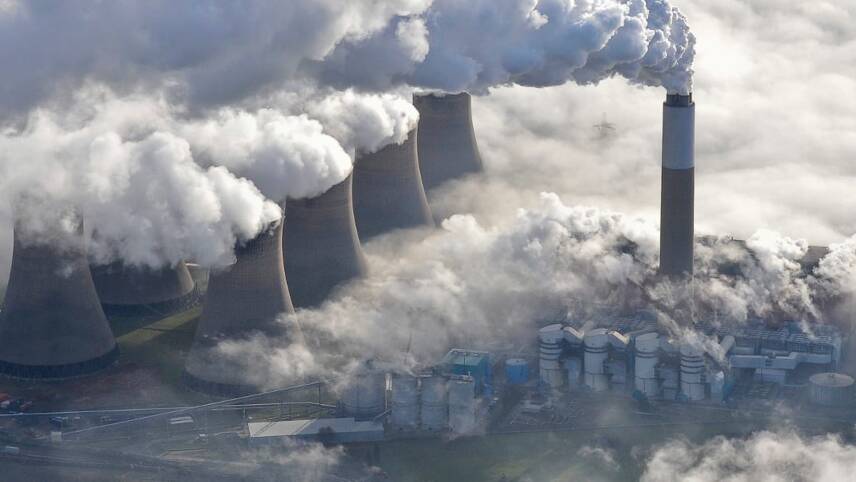You’ve reached your limit!
To continue enjoying Utility Week Innovate, brought to you in association with Utility Week Live or gain unlimited Utility Week site access choose the option that applies to you below:
Register to access Utility Week Innovate
- Get the latest insight on frontline business challenges
- Receive specialist sector newsletters to keep you informed
- Access our Utility Week Innovate content for free
- Join us in bringing collaborative innovation to life at Utility Week Live

The record for the longest period of coal-free electricity generation in Great Britain has been surpassed.
At just after 6am on 28 April the country broke the previous high of 18 days, six hours and 10 minutes, set last June. When this article was updated the data showed that the country was still coal-free 24 hours later.
For April so far, coal has accounted for just 0.7 per cent of electricity generation in Great Britain compared to more than 57 per cent from low-carbon sources. Nuclear accounted for 21 per cent of generation, with onshore wind 10 per cent, offshore wind 8.7 per cent and solar 8.6 per cent.
“This record-breaking stretch shows that Britain now barely depends at all on coal to meet our energy needs, which is testament to our world-leading low-carbon energy industry,” said energy and clean growth minister Kwasi Kwarteng.
“As we move to end our contribution to climate change entirely by 2050, it’s great to see green energy continuing to go from strength to strength, even during this difficult time.”
Britain’s done it! ⚡️ It’s a new record for the longest period of #coalfree #electricity generation in this country. 18 days, 6 hours, 11 minutes . More to come on this – in the meantime find out more about our #zerocarbon goals below @beisgovuk @PastCoal pic.twitter.com/FlFKr36TzN
— National Grid ESO (@ng_eso) April 28, 2020
Fintan Slye, director of National Grid Electricity System Operator (ESO), said: “2020 is shaping up to be a record-breaking year for Great Britain’s electricity system, and I’ve little doubt we’ll see more exciting developments as the growth and performance of renewables continues to transform our grid at an astonishing rate.
“Within a matter of days we’ve seen a new solar generation record, and the longest period of coal-free operation in Britain. And that follows two of the greenest months on record at the start of the year, underlining the progress that’s being made towards our target of being able to operate the electricity system entirely with zero carbon sources by 2025.
The milestone was welcomed by the Solar Trade Association (STA), which said that since midnight on 10 April, the UK has seen more than 1 terawatt hour (Twh) of solar power put on the grid.
STA chief executive Chris Hewett said: “Solar is playing a critical role in delivering a fossil-free grid and cleaner, cheaper power to Britain. As we look towards a net zero future, solar will become an increasingly greater part of the energy mix, tackling high power prices, climate change, and biodiversity loss.”
“With the government beginning to consider how best to kick-start the economy following the Covid-19 crisis, it has a golden opportunity to place renewables at the heart of its recovery package. Solar in particular can provide a glut of quality green jobs and growth at short notice, with your average solar park able to be built in less than six months, and home installation in less than a day. The industry is ready to help drive the revival.”
Dr Jonathan Marshall, head of analysis at the Energy and Climate Intelligence Unit, said it was “moments like these that can provide valuable insights into keeping the lights on as we move towards a net zero economy”.
He added: “Today’s record coal-free run is another remarkable milestone in the decline of coal power in the UK, and it won’t be the last. But underneath the latest record lies a bigger story, that the operation of national energy systems with dwindling supplies from fossil fuels is rapidly becoming the norm. No longer are there questions around the ability of grid operators to keep the system going; instead, attention is turning to rapidly learning as much as possible from conditions where low-carbon power dominates.”
While the breaking of the record has been widely hailed, Andy Bradley, director at consultancy firm, Delta-EE, said it is was important to acknowledge this had been in part driven by the drop in demand caused by the coronavirus lockdown.
However, he stressed that it is clear Britain has a “resilient grid able to cope with greater renewable capacity”.
He added: “The changing grid profile has recently resulted in consumers being paid to use electricity – a sign of a ‘new normal’ for the grid. It’s not only oil prices that can turn negative.’
“This builds our confidence the grid is able to cope with future developments, but we must accelerate our transition towards net zero. Coal is due off the system by 2025 and renewables have shown they are cost competitive with a viable route to market. We’d like to see progress in clean technology as a key part of the economic stimulus out of the economic slump.”
It is less than a year since Britain recorded its first ever coal-free week. At the time, that was the longest such period since the first coal power station was opened in London in 1882.
Experts at Imperial College London have predicted the imminent arrival of coal-free summers, paving the way for the complete removal of coal generation from the power grid.




Please login or Register to leave a comment.